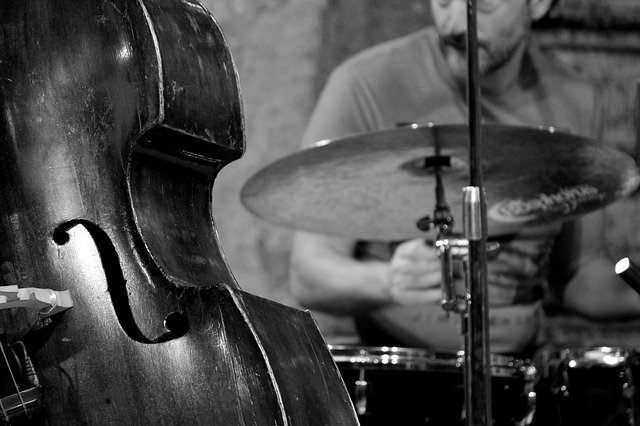One of the most common comments I hear among professional drummers is that they don’t practice anymore. For most young drummers, this sounds appalling! I remember reading an ad that Steve Gadd did in Modern Drummer magazine many years ago where he stated that he didn’t really need to practice a lot everyday, because he’d been playing the drums forever. At the time, I simply didn’t understand how it was possible to play like that unless you practiced constantly.
Now, many years later, I have a different perspective. First of all, just understand that most great players did put in many, many hours to achieve a level of mastery over the instrument. Many people have said that in order to become truly great at something, to become a master, you need to put in 10,000 hours worth of study or work. Depending on how long you practice a day, that can take anywhere between 7-20 years. So if you’re a young drummer, and want to be really great on the instrument, be prepared to put in a lot of work, for a long time. There really isn’t any short-cut, although practicing efficiently really helps.
Practice until you can play everything you want to be able to play. When you can play everything you want to be able to play, you’re done practicing
– Lenny White
As a professional drummer, these days I have 2 basic practicing goals. The first is simply to keep my chops that I’ve developed in shape so I can always play my best. The second is to continue to learn and improve. I’ve found both of these practicing goals to be important psychologically and emotionally to my performing. If my chops are out of shape, I feel embarrassed to perform, because I know I can’t play my best. Therefore I don’t play with as much confidence. If I’m no longer learning and improving, I become bored with the drums. Then I become lax in my concentration.

Reasons Why Drummers Stop Practicing
I think there are 3 reasons professional drummers don’t practice anymore. The first is that they think they don’t have time. They were used to practicing several hours everyday, and they feel that practicing 30 minutes or an hour a day wouldn’t accomplish anything.
The second is that they’re always playing in situations that don’t challenge them. They’ve achieved a certain level of proficiency. They get lots of compliments from their band mates and they feel comfortable.
The third reason is related to the second. When they do practice, it’s very repetitive and uninteresting. They have a warm-up routine that they might not have changed in years. They practice genres that they already know how to play.
Tips To Efficient Practice For Busy Drummers
- Skip your warm-ups. Most drummers were taught to “warm-up” before they practice. I have always felt that this was really inefficient. If I only have 30 minutes to practice on my busiest day, and I spend 20 minutes warming up, I don’t really have any time left to practice anything! What I do instead, is to spend that 20 minutes practicing something. This could be a rudiment I want to work on, an exercise to increase hand or foot speed, etc. I start slowly, just like I would if I was warming up. I gradually increase the speed. So I am actually warming up. But rather than just warming up, I’m practicing something that I actually want to improve from the first second I start.
- Combine exercises. Multi-task. When learning to play the drums, it’s important to isolate everything you do. You should practice stick control on a snare drum or practice pad, away from the kit while you’re mastering your double stroke rolls, etc. You should speed time working on controlling the bass drum or drums, while playing nothing with the hands. Busy, professional drummers don’t always have a lot of time for this type of practice though.The solution is to start your practice session at the drum set. Many times I start by playing some type of ostinato on the bass drum and practicing something with the hands at the same time. This could be a samba bass line with stick patterns out of Stick Control by George Lawrence Stone, etc. This way, you’re warming up your hands and feet at the same time. If I have time, I will later move to the practice pad and work some more on my stick technique. This is much more efficient though, because I’m already warmed up from practicing on the drum set.
- Vary your practice routine. This serves a couple of purposes. First of all, it keeps your practicing interesting. This enables to to concentrate better and makes your practicing more productive.It also helps you to cover more ground. If you practice in odd time as well as in 4/4 time, you’ll eventually be comfortable with both. If you only practice in 4/4 time, you’ll always struggle with odd time signatures.
- Practice things that aren’t required on your current gig. This is especially true if you’re very comfortable drumming with your current band. Some things take a long time to develop. It’s best to start working on those things before you need them, rather than when you need them.
- Practice musical things along with technical. Even if you only have 30 minutes to practice, spend at least 5 minutes working on something musical. Study grooves in a new style. Play along with a reggae tune if you’re not familiar with that genre. Learn some new tunes. Listen to a really great drummer who plays different than you and how they approach a certain song or style of music. You want to keep growing musically as well as technically. Personally I was very weak on this point for a long time. I spend all my time practicing technical exercises but very little time listening to music, which is really what I needed to do.
- Practicing and improving your drumming is a lifetime pursuit. For me, that’s what has kept it interesting all these years. It’s one of the reasons I’m just as excited about playing the drums now as when I was a kid.
